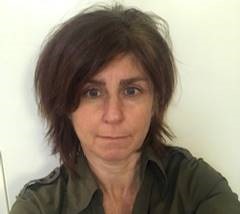Created in 2022, the Women’s House Marseille Provence is a unique reception, listening, care, support and orientation center for vulnerable women and victims of violence. The RAJA-Danièle Marcovici Foundation spoke with Sophie Tardieu, head of the "Education and Prevention in Sexual and Emotional Health" program, and Florence Bretelle, head of the department, about this new Women's Center.
1 – You both co-founded the Women’s House. Can you explain to us what is it? Why is it important for the city of Marseille?
We are a small group of 5 women health professionals, who co-founded the Women’s House. The initial objective was to duplicate the Saint Denis model, created by Dr. Ghada Hatem.
Opened in January 2022, it is a unique place where we take care of women victims of violence. It is first and foremost a care service of the Marseille’s Public Hospitals, a consultation unit, located at the La Conception hospital in Marseille.
There are 14 women’s houses in France today. They are based on the same model:
– An information desk,
– attached to a hospital,
– which offers comprehensive care (medical, psychological, social, and legal), whether by individual consultations or group activities.
In Marseille, we take care of women according to 3 care paths:
– Women victims of all types of violence: physical, psychological, sexual, sexist, marital, intra-family, currently or in the past.
– Women who are victims of sexual mutilation.
– Pregnant women in situations of violence.
We also have a fourth very important pathway, which is a pathway for prevention and education. It is good to heal, but it is even better to prevent and educate the population! As health professionals, we know that education is the vector of the prevention of violence against women.
With this in mind, we are developing innovative training programs in collaboration with Aix Marseille University, in particular the “Women 4 Women” program, a peer education program on women’s health, for women and by women.
The Women’s House Marseille Provence is the first structure of its kind in the region. Of course, the non-profit network is very dense but there was no place whose main objective was caring, dedicated to women victims of violence.
The 2022 figures for domestic violence in Marseille are:
– 4292 victims of domestic violence(about 12 cases of domestic violence per day).
– 2800 cases handled by the Prosecutor.
At the hospitals, over the course of a year, nearly 400 women had to be hospitalized because of domestic violence, nearly 80 of whom were under the age of 18.
2 – Compared to other forms of violence, what are the particularities of domestic violence?
Domestic violence is unique as it takes place in the intimate circle. All domestic violence is based on a relationship of domination within the couple. It is not a simple conflict. It is intentional and responds to a process underpinned by the perpetrator’s hold on the victim. Domestic violence can take different forms: verbal violence, physical violence, psychological violence, sexual violence, administrative and economic violence… of course, these types of violence can co-exist within the couple.
In this context of conjugal violence, children are considered as co-victims from the moment they are in the place of violence.
Domestic violence has serious consequences on the victim’s psychological and somatic health, as well as in terms of sexual and emotional health, which can lead to the victim’s death. Recent studies have shown that women victims of violence lose 1 to 4 years of healthy life.
3 – What is the typical intake process when a woman comes to the Women’s House for help? To whom are they redirected after their arrival?
They arrive through different referrals. They may be referred by a clinical service of the hospital (the emergency room, the gyneco-obstetrics service, psychiatry and somatic services), they may also be referred by accommodation structures with which we have partnership links, non-profit organization that accompany women victims of violence and who do not have access to medical care. About 10% of the women come because they heard about it in the media.
The women have a first contact (physical or telephone) with the secretariat which allows to objectify the level of urgency, then a first evaluation interview. This is a multidisciplinary evaluation, conducted by two health professionals, a medical professional (gynecologist or midwife) and a non-medical professional (psychologist or social worker). An evaluation of medical, psychological, social, and legal needs is carried out during this interview. Then, a path of care is proposed to the woman according to her needs and her time frame: gynecological, obstetrical, sexological, psychiatric and psychological consultations, social and legal support (with a permanent lawyers’ office) but also group activities allowing women to regain their self-esteem, which is often lost (discussion groups, karate workshops, etc.). The objective is to take charge of the consequences of violence on their health, to get them out of the cycle of violence and to give them back autonomy in their lives.
4 – If a close relation is a victim of domestic violence, how can we help?
4 words: Listen – Believe – Help – Guide
It is extremely difficult for women to verbalize the fact that they are victims, especially for victims of domestic violence. We are touching on the “very intimate”. It is a long process that we accompany. Each woman has her own time frame. We must not rush this temporality. We are convinced that “to say is to make things happen”.
5 – The figures for domestic violence are appalling: 147 feminicides in 2022 (#NousToutes), 398,310 child co-victims in 2021 . How do you explain the increase in domestic violence in recent years?
The figures are chilling:
220,000 women are subjected to domestic violence.
1 woman in 10 is a victim of domestic violence in France during the last 12 months.
85% of victims of domestic violence are women.
One woman dies every three days because of being beaten by her partner.
7% of women will be victims of rape in their lifetime, mostly by a relative.
30% of cases of domestic violence begin during the first pregnancy.
There are several reasons for the increase in domestic violence:
– Women’s voices have been freed up. We have been speaking more and more about domestic violence since the #MeToo movement and the Grenelle of domestic violence in 2019..
– The COVID has also had a negative impact on violence by confining couples and families.
In parallel,
– There has also been an improvement in the accompaniment and care of women victims, particularly at the level of the Police and Justice, but also at the level of health professionals.
– Screening is becoming more systematic among health professionals. Professionals are better trained screening and news tools are being developed.
– Education has also been strengthened, and this is one of the missions of the Women’s House. Helping women who are victims of violence is good, preventing violence is even better. For us, education is clearly the vector of the fight against violence against women.
Of course, there is still a lot to do when we look at the figures of violence, the figures of sexual health education among the youngest, but all together (politicians, health professionals, police, justice, associations) we are on the right track!

Sophie Tardieu: A public health practitioner since 2001 at the Assistance Publique Hôpitaux de Marseille, specializing in perinatal care, Dr. Sophie TARDIEU co-founded the Women’s House Marseille Provence in 2022 with Florence BRETELLE, Dr. Hélène HECKENROTH, Dr. Anaïs NUTTALL and Françoise CERRI. At the Maison des femmes, Sophie TARDIEU is in charge of the “Education and Prevention in Sexual and Affective Health” program. She implements public health actions for different target populations, builds innovative teaching and training programs based on the concepts of peer education and “going towards”. She is also in charge of developing partnerships and sponsorship for La Maison des Femmes. She is a member of the Re#Start Collective, which brings together the Maison des femmes at the national level.
Florence Bretelle:  She is a university teacher and hospital practitioner in obstetrics gynecology at the Faculty of Medicine of MARSEILLE at the University of AIX-MARSEILLE, Hospital Surgeon, Obstetrician Gynecologist at the AP-HM. She is also Head of the Maternity Ward of the Conception Hospital in MARSEILLE and is President of the “Mediterranean Network”, a perinatal network in the Provence Alpes Côte d’Azur region. She has been head of the Marseille Provence Women’s Center since its creation in 2022. The Marseille Provence Women’s Center is a service of the AP-HM. Its operation is based on a founding team including Dr. Heckenroth, Dr. Tardieu, Dr. Nuttall and Ms. Cerri, a midwife. The operational team that receives women and organizes their care is expected to double in 2024 in our new premises expected to open at the end of 2023.
She is a university teacher and hospital practitioner in obstetrics gynecology at the Faculty of Medicine of MARSEILLE at the University of AIX-MARSEILLE, Hospital Surgeon, Obstetrician Gynecologist at the AP-HM. She is also Head of the Maternity Ward of the Conception Hospital in MARSEILLE and is President of the “Mediterranean Network”, a perinatal network in the Provence Alpes Côte d’Azur region. She has been head of the Marseille Provence Women’s Center since its creation in 2022. The Marseille Provence Women’s Center is a service of the AP-HM. Its operation is based on a founding team including Dr. Heckenroth, Dr. Tardieu, Dr. Nuttall and Ms. Cerri, a midwife. The operational team that receives women and organizes their care is expected to double in 2024 in our new premises expected to open at the end of 2023.